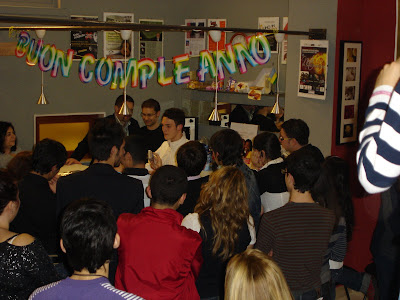Vision
Where there is no revelation the people cast off restraint. - NIV
Where there is no vision, the people perish - KJV
When people do not accept divine guidance they run wild - NLT
Without prophetic vision people run wild – God’s Word)
Where there is no prophecy the people cast off restraint - NRSV
If people can’t see what God is doing they stumble all over themselves – MSG
Without chazown (vision, revelation, divine guidance), the people we lead will be confused, scattered, unfocused and easily distracted. Unfortunately, this is how many ministries and organizations function: visionless and without it.
People in a visionless church are like that. Without vision alignment, the people are busy doing something. They’re driving along, doing church, but without any direction and are easily pulled off center. The ministry may have tons of activity, but there’s little spiritual movement.
Ministries that have it always have a clear vision. The people know the vision, understand the vision, believe in the vision and live the vision. The vision guides them, motivates them and energizes them.
Without vision, people perish. Dreams fade. Youth groups lose their life. Once vibrant churches slowly die.
The original mission fades as the organization drifts.
Define Your Vision
Do you have a vision? Many churches and organizations have a vision statement. But in reality, they have no vision.
Finding The Vision
Hopefully the leaders of your church will seek God, find a divine burden examine their resources and context and present a Spirit-breathed, God-sized vision!
1. Why does your organization exist?
2. What can your organization be the best in the world at?
3. If you could do only one thing, what would it be?
4. If you left your organization tomorrow, what would you hope would continue forever?
5. What breaks your heart, keeps you awake at night, wrecks you?
An Effective Vision
An effective vision will always be memorable, portable and motivational - Dr. Sam Chand
A great vision statement is memorable.
Your vision must be portable.
Your vision should also be motivational.
It should cause agitation, ambition, ignition, even competition.
- People tend to give sacrificially for it
- People will tolerate inconveniences for the greater cause
- People will talk
- The organization and ministry will take on a life of is own
- Opportunities for distraction will decrease
Vision leaks – Andy Stanley
Talk about the vision. Tell stories about the vision. Illustrate the vision. Reward those who live the vision. Highlight the vision. Once you have done all of the above, do it all again.
Divine Focus: You Know Where It Is Not
Nothing can add more power to your life than concentrating all your energies on a limited set of targets. – Nido Qubein, Business Consultant
In my observation, ministries that have it tend to be focused on a limited set of targets. They do a few things as if all eternity hinged on their results, and they do these things with godly excellence.
They are almost obnoxiously passionate about a few important things.
Someone once said, “if you chase two rabbits, both will escape.”
Too Many, Too Much, Too Bad
An Italian proverb says, “Often he who does too much does too little.”
Cutting Back To Move Forward
Don’t let your vision become blurry. Busyness blurs ministry vision.











































